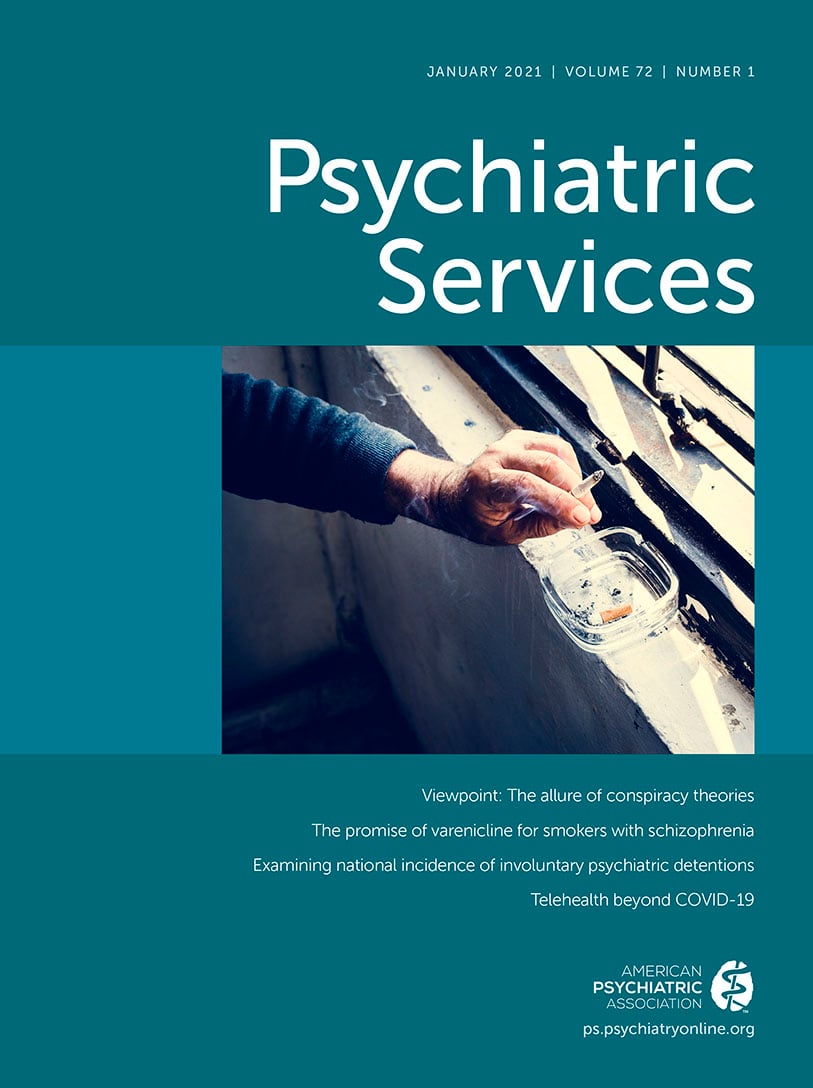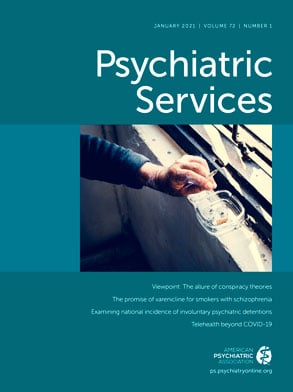Placing a patient on either an involuntary psychiatric hold or a form of guardianship or surrogate decision making is one of the most solemn duties of a mental health professional. To preempt a person’s autonomy is a responsibility that clinicians must approach with great care. The justifications for such measures can be variable: some patients suffer from decisional incapacity or loss of insight, whereas others experience cognitive impairment. These conditions constrain the clinician’s ability to respect patient autonomy, while serving other principles of justice and beneficence. With regard to the principle of nonmaleficence, the clinician must also determine that an involuntary commitment is more likely to do good than harm.
This issue of
Psychiatric Services includes two timely articles, by Lee and Cohen (
1) and Doyle et al. (
2), that shed light on policies related to suspension of patient autonomy in the form of involuntary holds and default surrogate decision making. These studies highlight the wide state-to-state variability in these consequential policies. The Lee and Cohen article demonstrates that both definition and rates of involuntary holds vary significantly across states and that data and reporting are spotty and difficult to interpret. The authors advocate for standardized definitions of terms and data collection that would sharpen understanding of inpatient civil commitment.
Doyle et al.’s study examines the differences in state statutes that define default surrogate decision making for mental health treatment—situations where no surrogate decision maker has been designated. They found that 30 states either restrict the type of mental health treatment that surrogates may authorize or completely prohibit surrogates from making decisions about mental health treatment. In these cases, decisions may be made by a family member, court-appointed guardian, or the patient’s physician, none of whom may be aware of the patient’s true treatment preferences. This study thoughtfully outlines significant statutory variability in surrogate decision making that has particularly salient implications for health disparities and reinforces worrisome stigma against persons with mental illnesses.
These studies demonstrate wide variability in state policies that can affect service utilization, treatment engagement, and recovery. State laws vary by their definitions of criteria (e.g., danger to self, danger to others, and grave disability) and of the imminence of potential harm. Furthermore, laws vary as to whether symptoms are attributable to a treatable mental condition or to substance use disorders or medical conditions. Even though mental health clinicians are best trained to make these determinations, many states empower law enforcement officials, who have little training in managing mental health crises, to place people on involuntary holds. In some underresourced mental health systems, involuntary holds may function even as leverage to access inpatient psychiatric care. With such complexity and regional variation, there is significant risk of exacerbating racial-ethnic and other health disparities.
The Lee and Cohen study demonstrates that transparency and accountability are ill served by poor-quality data collection. Although involuntary treatment and surrogate decision making may be common practices in mental health care, in the absence of consistent data there is no assurance that these processes are executed in a thoughtful, patient-centered, and evidence-based manner that respects patient autonomy, justice, and health equity.
Doyle et al.’s study demonstrates that seeking patient-centered approaches is imperative to ensure that persons with mental illness are afforded equitable access to proxy decision making on par with that for persons with other medical conditions. One approach recommended by the Substance Abuse and Mental Health Services Administration and the National Alliance on Mental Illness is the use of psychiatric advance directives (PADs), legal documents that allow patients to state preferences for treatment while competent, in advance of a future crisis accompanied by decisional incapacity. These documents can promote autonomy, support recovery, and provide an opportunity to align treatment goals with patient preferences. Novel software application tools have recently been developed to increase the use of PADs (e.g.,
https://smiadviser.org/mymhcp?utm_source=SAMHSA_social).
There is still much to be determined about the role of involuntary holds and surrogate decision making in mental health care. A fundamental question remains unanswered: how do these practices affect outcomes in comparison with alternative approaches? Pros and cons of involuntary treatment must be weighed. Improving the consistency of policies, accountability, and evaluation—including a clear focus on equity—is a crucial first step to ensure that these measures are used only when necessary.

